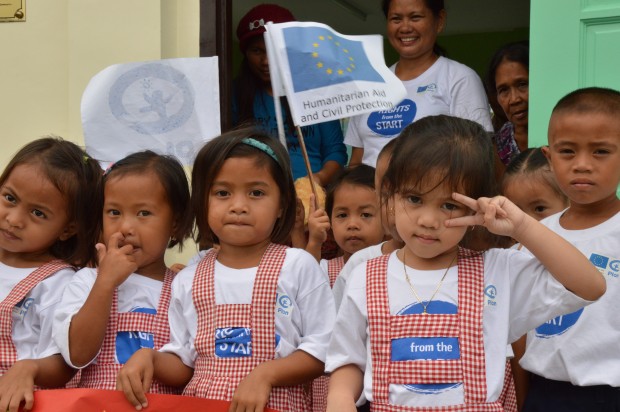On the occasion of Universal Children's Day: Joint Statement
EU News 374/2016
Brussels, 20 November 2016
On the occasion of Universal Children Day on 20 November, Federica Mogherini, the High Representative of the Union for Foreign Affairs and Security Policy and Vice-President of the Commission, Neven Mimica, Commissioner for International Cooperation and Development, Dimitris Avramopoulos, Commissioner for Migration, Home Affairs and Citizenship, Christos Stylianides, Commissioner for Humanitarian Aid and Crisis Management, Vera Jourova, Commissioner for Justice, Consumers and Gender Equality, and Tibor Navracsics, Commissioner for Education, Culture, Youth and Sport, made the following statement:
We usually hear that children and youth are the future of our societies. The truth is that they arealso the present. Our children are agents of change within their families and communities and their right to be heard and to participate in a meaningful way to the development of society must be fully respected.
This is why we expect all States to invest in ourchildren. Global peace and security cannot be achieved without fair and sustainable development and respect for all the rights of all children.
Too many children are being left behind, because of poverty, because of discrimination – based on their gender, ethnic background, religion, the region of the country they live in, a disability or their sexual orientation. It's our collective moral and political duty to keep working to tackle this challenges and to do it more and more effectively.
Too many children are left behind because of their migrant or refugee status. Currently, one in four asylum applicants in Europe is a child. Among the more than one million refugees who arrived in Europe in 2015, 31% were children, including 90.000 unaccompanied children. Migrant and refugee children need to be treated first and foremost as children. The protection of their rights in full respect of their best interests is a priority and a central element of our Common European Asylum System. The 10th European Forum on the rights of the child to be held on 29-30 November 2016 will focus on the protection of migrant and refugee children.
The New York Declaration for Refugees and Migrants contains an explicit commitment to ensure all children are receiving education within a few months of arrival. The European Union invests heavily in education and training in developing countries and its humanitarian funding for Education in Emergencies has helped nearly 4 million crisis-affected children around the world to access education and training.
Too many children are deprived of their rights to education: 124 million children in the world are out-of-school. This calls for a serious review of existing legislation, policies and practices to ensure that no direct or indirect discriminations impede the right of all children to education and vocational training. There should be equitable access for all girls, including those who are pregnant, children who are parents, children with disabilities, ethnic minorities and indigenous children, migrant and refugee children and children who have been deprived of their liberty.
The EU has already taken steps in this direction: including through developing strict guidelines, which make sure that any EU-funded projects aimed at protecting children are effective. But more than that, we aim to strengthen our partner countries' capacity to protect the rights of all children in a comprehensive manner and at all levels. EU funds are effectively spent, if we manage to strengthen national systems in protecting children and their rights.
And too many children are forced to work. The ratification and effective implementation of ILO Convention 182 on the worst forms of child labour and ILO Convention 138 on the minimum age for employment are key in achieving the elimination all forms of child labour by 2025 and meeting the education targets set out in the 2030 Agenda. The European Union is committed to ending child labour, as confirmed by recently adopted Council Conclusions on Child Labour, and we welcome the IV Global Conference on Child Labour to be held in Argentina in November 2017.
Our children will be what we will help them to be. The world is what we and they make of it. It is a responsibility we all share - it is a duty we cannot elude.
Source and additional information:
http://europa.eu/rapid/press-release_STATEMENT-16-3762_en.htm


© European Union / ECHO URL













